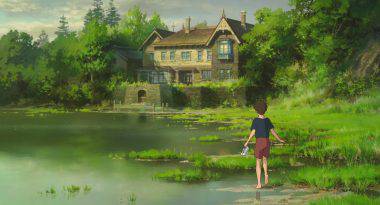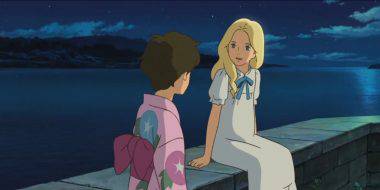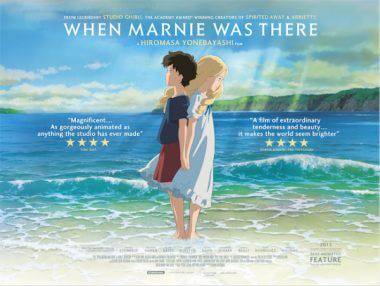When Marnie Was There – Review
Pity Hiromasa Yonebayashi. He is an accomplished director with an Oscar nomination to his name. He is, in his own right, a towering animator. Yet he keeps having to explain to journalists how he is not Hayao Miyazaki or Isao Takahata. Through no fault of his own, his latest film could well be the last ever in-house Studio Ghibli feature. And despite its standalone merits, it is being cast as the swan song for a production house he did not build. Tough gig.
None of which is to suggest that When Marnie Was There, his second feature for the studio, is not recognisably a Ghibli film. The core plot, about a callow young girl who comes of age through contact with a strange dreamland, slots right into the studio’s canon. The girl is Anna, a sullen 12-year-old who lives with her foster parents in the city. Alienated from her classmates, angry with everyone and herself, she withdraws into her sketchbook.
After collapsing from an asthma attack, Anna is sent to recuperate in a small seaside town where live relatives of her parents. While exploring the coast, she spots a stately mansion across the inlet. Overwhelmed by déjà vu, she takes a closer look: the house appears to be abandoned. A local confirms this, telling Anna that it used to be a holiday home for foreigners, but has long stood empty. But her curiosity is unquenched, and she returns at night to find the house brightly lit.

There she meets Marnie, a blonde girl her age. Impulsive and outgoing, Marnie is in many ways Anna’s opposite. Yet the two strike up a friendship and begin to meet in secret at night. Their relationship swiftly deepens into something close to romantic love, as they bare their souls to each other. Yet questions remain: Why does Marnie insist on keeping their friendship a secret? What attracts shy, friendless Anna to her? And why does she seem so familiar?
The film keeps us guessing until the end. Yonebayashi is a defter, more disciplined storyteller than either Takahata or Miyazaki. He strikes a delicate balance between the psychological intimacy of the former’s work and the oneiric fantasy more typical of the latter.

Certainly in its outward form, Marnie recalls Takahata’s Only Yesterday, in which a young woman moves to the countryside and contemplates her youth. In setting up the sense of mystery, it also borrows images from Spirited Away, such as the abandoned buildings and the rising tide. And through it all run perennial Ghibli tropes: the trauma of orphanhood, the wonder of nature, the respect for a child’s point of view. So potent is the nostalgia in this film that, like Anna, I sometimes had the uncanny sense that I was bearing witness to suppressed memories from my own childhood.
Given all this, it is almost surprising to learn that the story is not original to the studio. The source material is a novel by the late children’s writer Joan G. Robinson – selected by Miyazaki, natch. (Incidentally, this is Ghibli’s third adaptation of an English novel. This says something about the affinity between English and Japanese fantasy traditions.) The plot has been tweaked, and the book’s Norfolk setting has been replaced by the sparkling climes of Japan’s northern island of Hokkaido.
Yet, as their names and pale features suggest, Anna and Marnie remain Western – and so become outsiders in their world. This makes Marnie that rare thing: a Japanese film about foreigners in Japan. Aside from a scene in which a girl teases Anna about her blue eyes, this theme is never made explicit. Yet it charges the entire film with a novel kind of tension, complicating Anna’s sense of isolation. This is a fresh and intriguing take on identity politics, unique in Ghibli’s oeuvre.
Predictably, the film looks wonderful. As in his debut film The Secret World of Arrietty, Yonebayashi goes to town on the backgrounds, conjuring awesome dreamscapes out of the forest and the sea. The climactic set piece in a deserted silo is very atmospheric, if let down by some uneasy 3D effects. Takatsugu Muramatsu’s score is sweet verging on syrupy, and makes good (and telling) use of Francisco Tarrega’s Memories of the Alhambra. In what has become something of a Ghibli tradition, the closing song reveals a complete failure of aesthetic judgement.

Overall, Marnie plays it safe, while leaving room for a few surprises. Fans will be satisfied, children enchanted, older viewers diverted. To make that unfair comparison again: Yonebayashi does not have the freewheeling imagination, the flair for bursts of blindsiding magic, of the studio’s two great founders. Marnie is no masterpiece. But if it is to be Ghibli’s swan song, it is a fitting, beguiling one.
Note: I watched the film in the original version, with subtitles.
When Marnie Was There is released in UK cinemas on June 10


